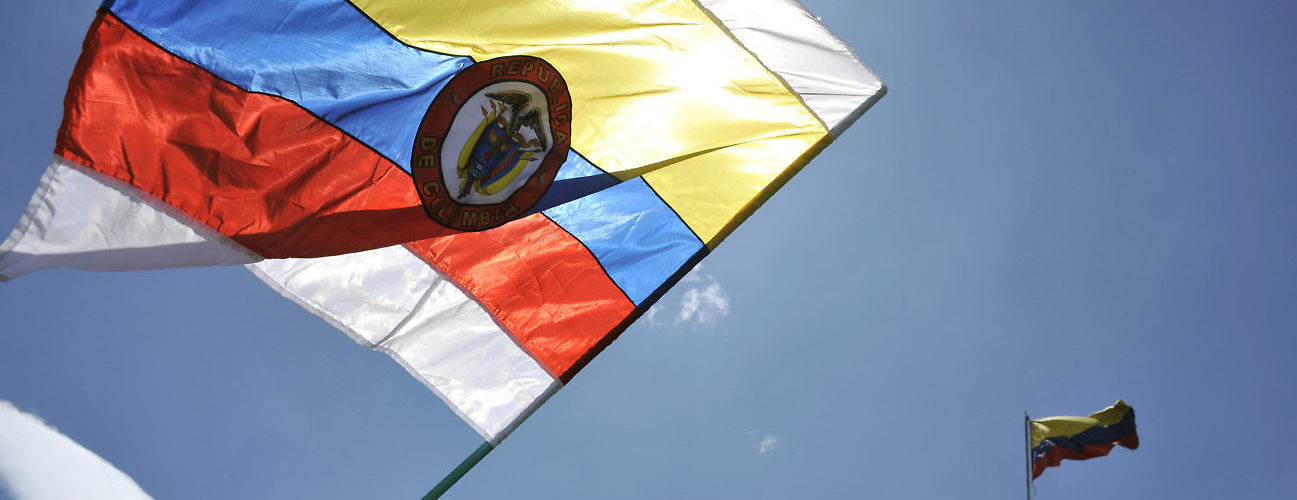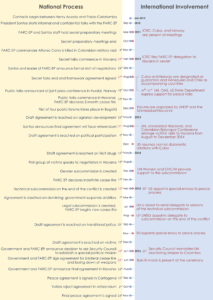A man holds a Colombian flag with white stripes during a demonstration in support of the peace agreement between the Colombian government and the FARC-EP, Bogotá, Colombia, November 30, 2016. (Guillermo Legaria/Stringer.)
On November 24, 2016, the government of Colombia and the biggest guerrilla group in the country, the Fuerzas Armadas Revolucionarias de Colombia–Ejército del Pueblo (FARC-EP), signed a final peace agreement. This accord put an end to the longest armed conflict in the Western Hemisphere and to long and convoluted peace talks.
What elements of the process contributed to its success? While it may be too early to properly speak of “lessons learned,” IPI’s latest paper highlights the key elements that seemed to have worked and those that made progress difficult. Over the course of the process, several factors emerged as central, both to its successful resolution and to the problems likely to arise during implementation:
- A limited agenda: Previous talks with the FARC-EP had been burdened by an extremely long agenda that included many issues the public believed should not be settled in a negotiation with an insurgent group. Reflecting this experience, the agreed final agenda addressed just six issues.
- A peace process removed from Colombia: Cuba’s hosting of the negotiations buffered the talks from the daily occurrences of war and politics in Colombia and provided a controlled environment. While this proved to be essential for the parties to come to an agreement, it left many Colombians feeling removed from the process and limited their sense of ownership.
- A strategic use of the international community: The dialogue was guided by a central premise: this would be a process “for Colombians, by Colombians.” This meant that the government tightly controlled the process and excluded the possibility of an external mediator. Nonetheless, the Colombian government reached out to and mobilized the international community. Although the involvement of these actors was essential to the successful outcome of the talks, it did not translate into wider legitimacy inside Colombia.










